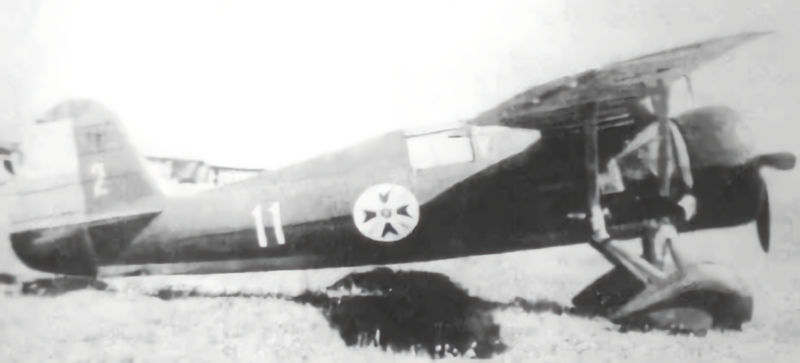PZL P.24 Overview
The PZL P.24 was a Polish-designed monoplane fighter developed in the mid-1930s by Państwowe Zakłady Lotnicze (PZL). It was a further development of the successful PZL P.11, fitted with the more powerful Gnome-Rhône radial engine. Unlike the P.11, which was primarily for Polish service, the P.24 was specifically intended for export, as licensing restrictions on the British Bristol Pegasus engine (used in the P.11) prevented its sale abroad.
The P.24 featured a gull-wing configuration, open cockpit, fixed undercarriage, and was heavily armed for its time, with versions carrying 2–4 machine guns or 2 machine guns plus 2 × 20 mm cannon. It proved attractive to countries seeking to modernise their fighter fleets in the late 1930s. Although never operated by Poland itself, it became one of the most widely exported Polish aircraft prior to the Second World War.
PZL P.24 in Bulgarian Service
Bulgaria purchased 14 PZL P.24B fighters in 1937. A repeat order for 20 PZL P.24C, to be delivered by the end of 1938 was later added. Later it ordered 26 PZL P.24Fs, 22 of which were delivered from Poland in July 1939, just before the outbreak of World War II. The remaining four, lacking propellers, were bombed in the Okęcie factory in September 1939 by the Germans.
The P.24s formed part of Bulgaria’s effort to re-establish a capable air force after the restrictions imposed by the Treaty of Neuilly. They were employed primarily as frontline fighters in the late 1930s and early war years, tasked with air defence and patrol duties. Although Bulgaria did not take part in combat operations in the early stages of the war, the P.24s were used during Bulgaria’s entry into the Axis war effort in 1941 for defensive air patrols. By 1943, they were increasingly outdated against modern Allied aircraft and relegated to training and second-line duties. The last Bulgarian P.24s were withdrawn by 1944, when German-supplied Messerschmitt Bf 109s had fully replaced them.







